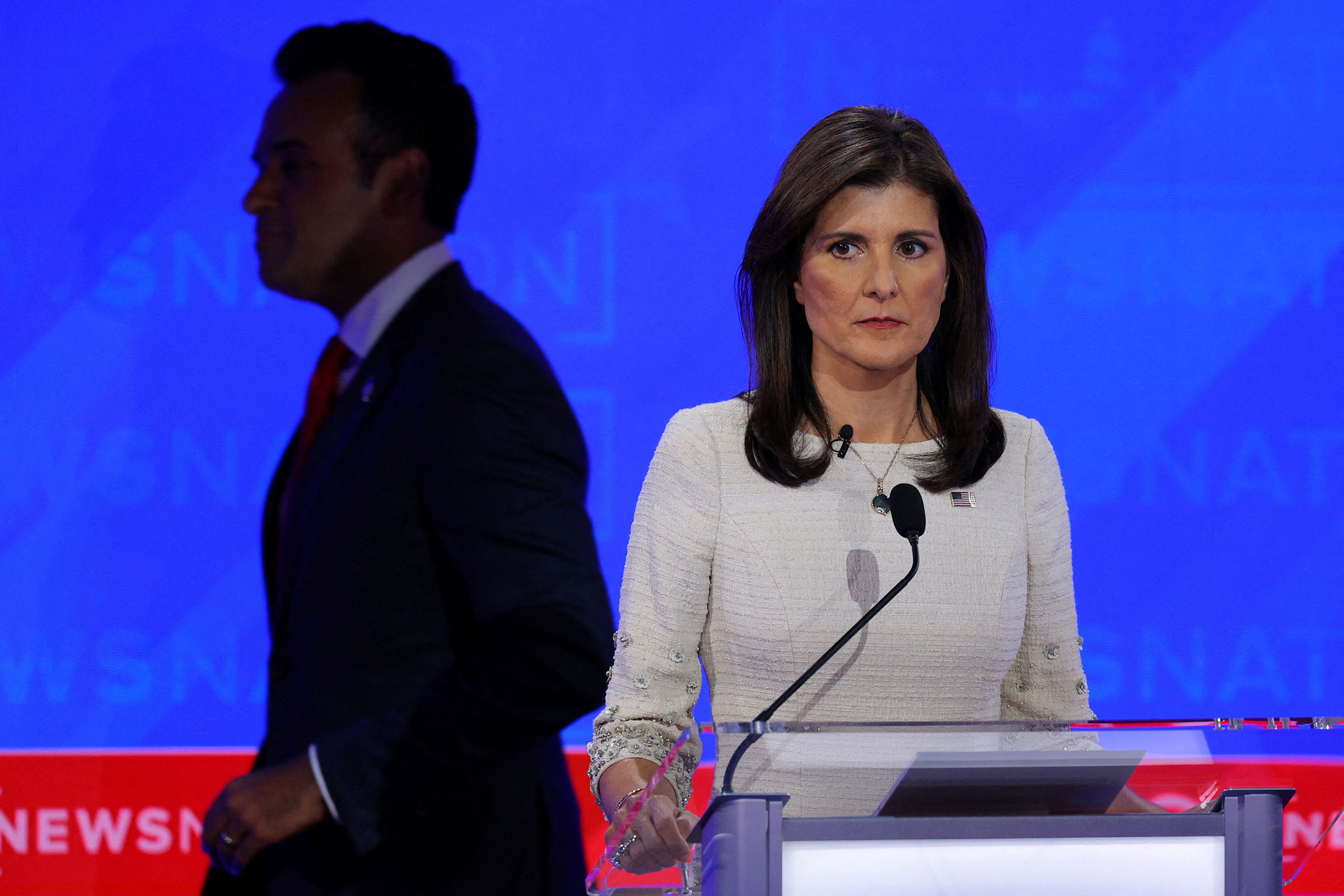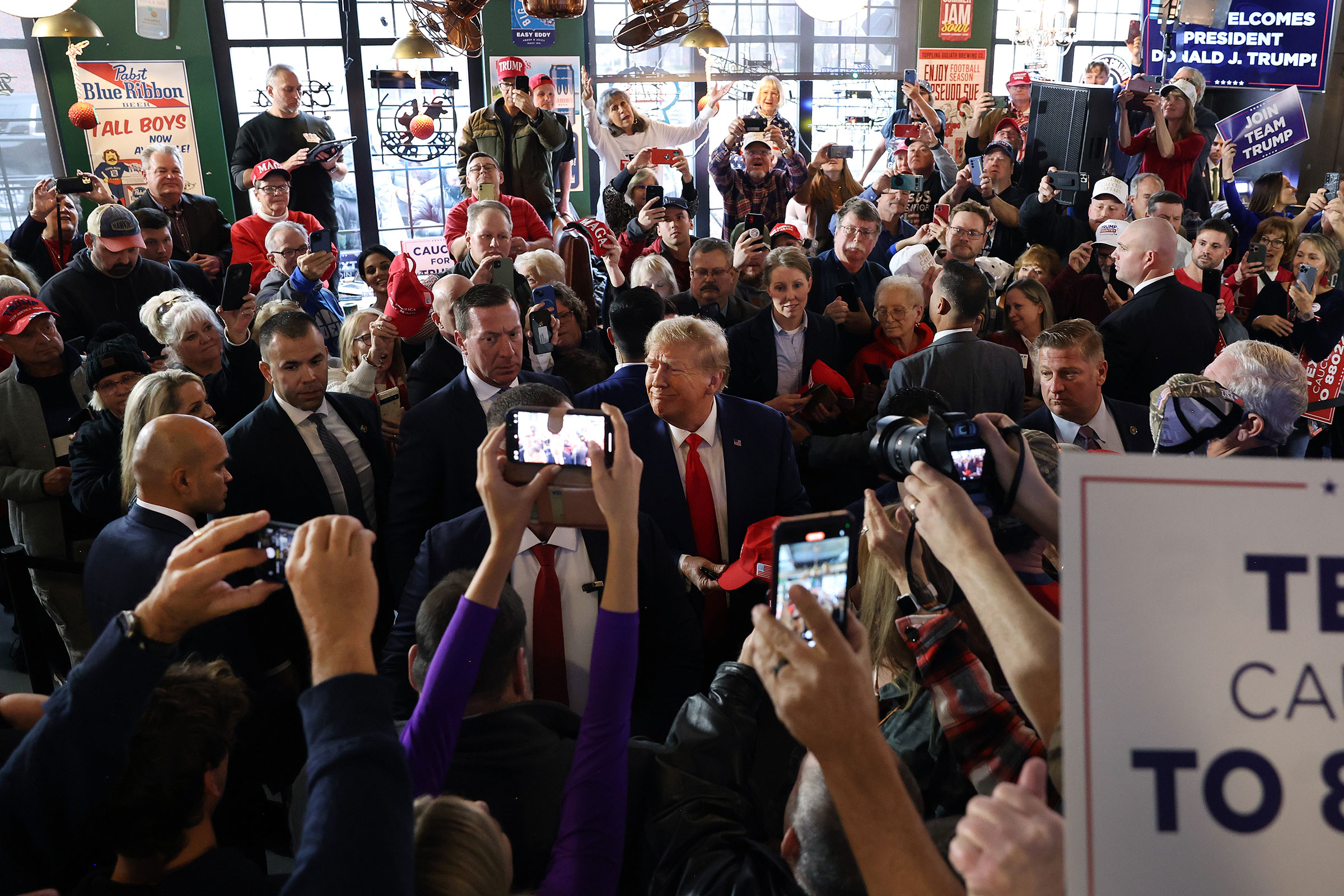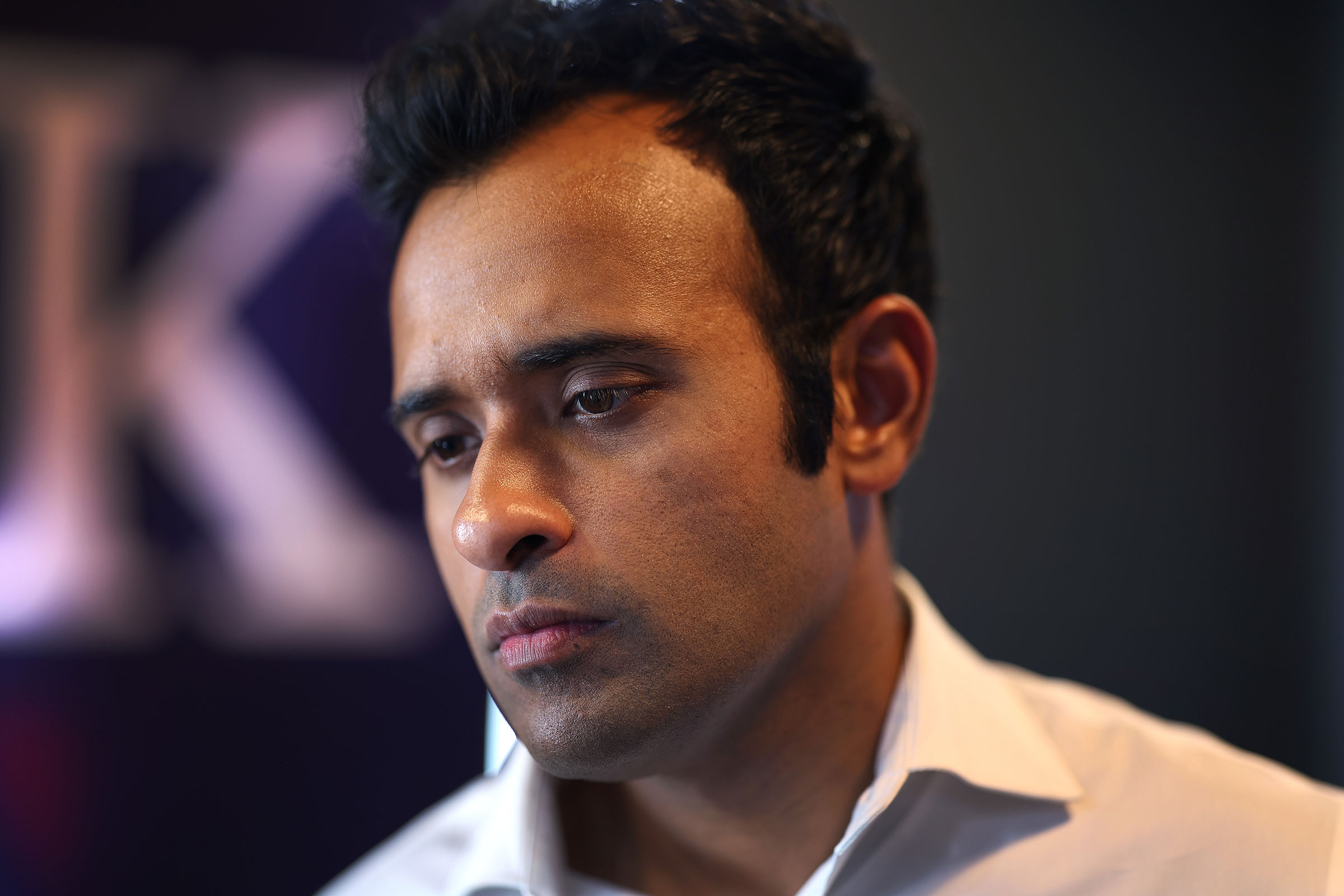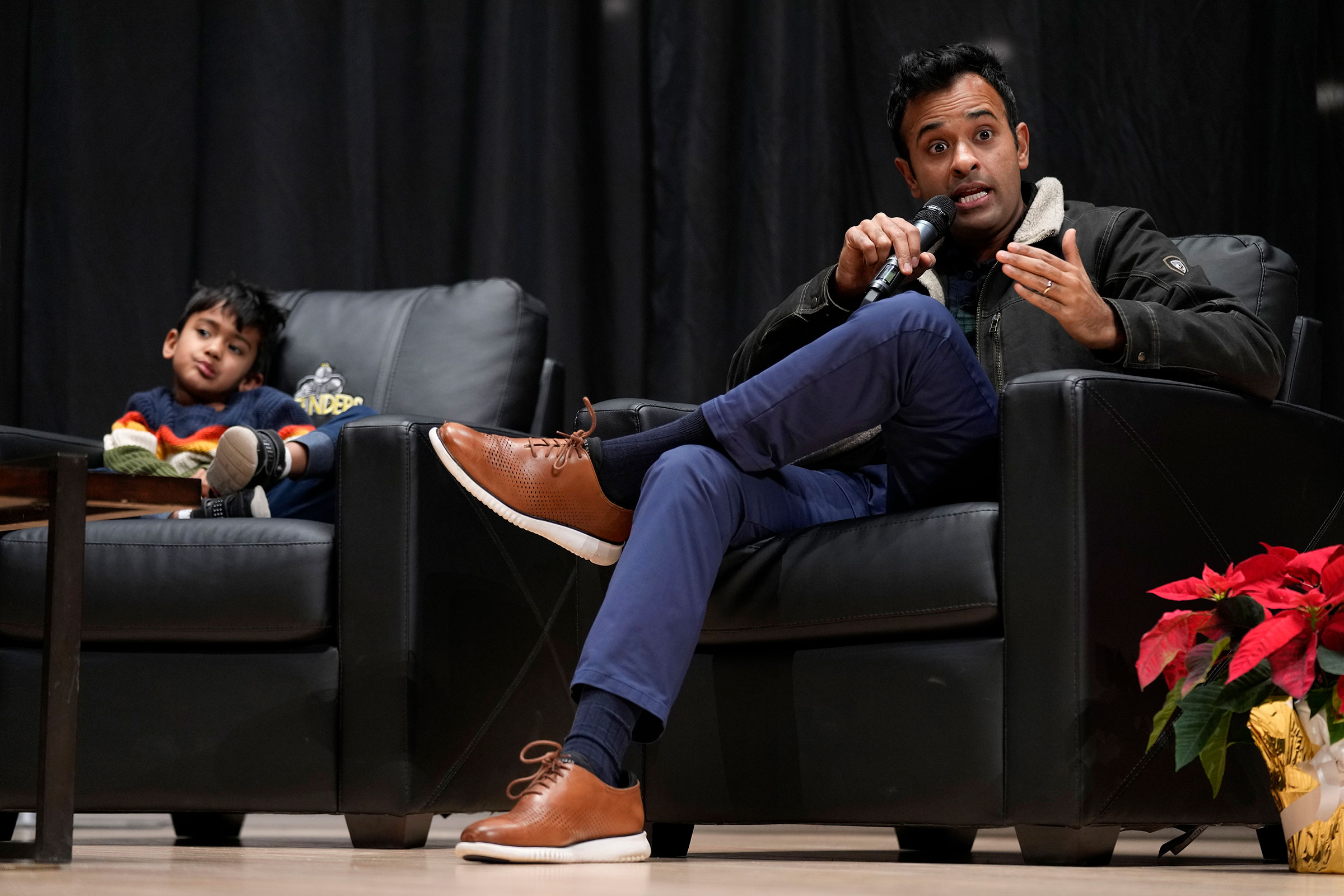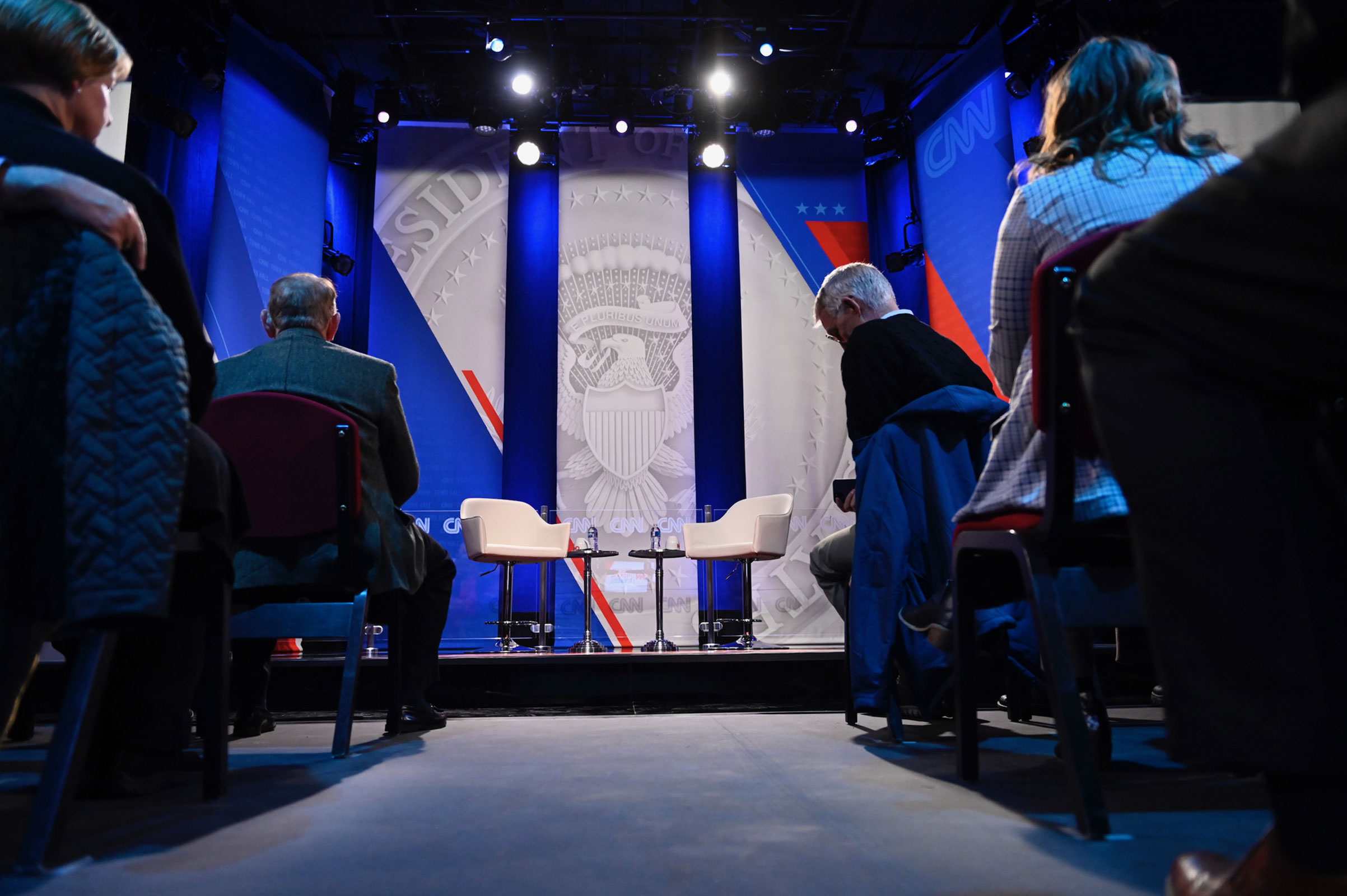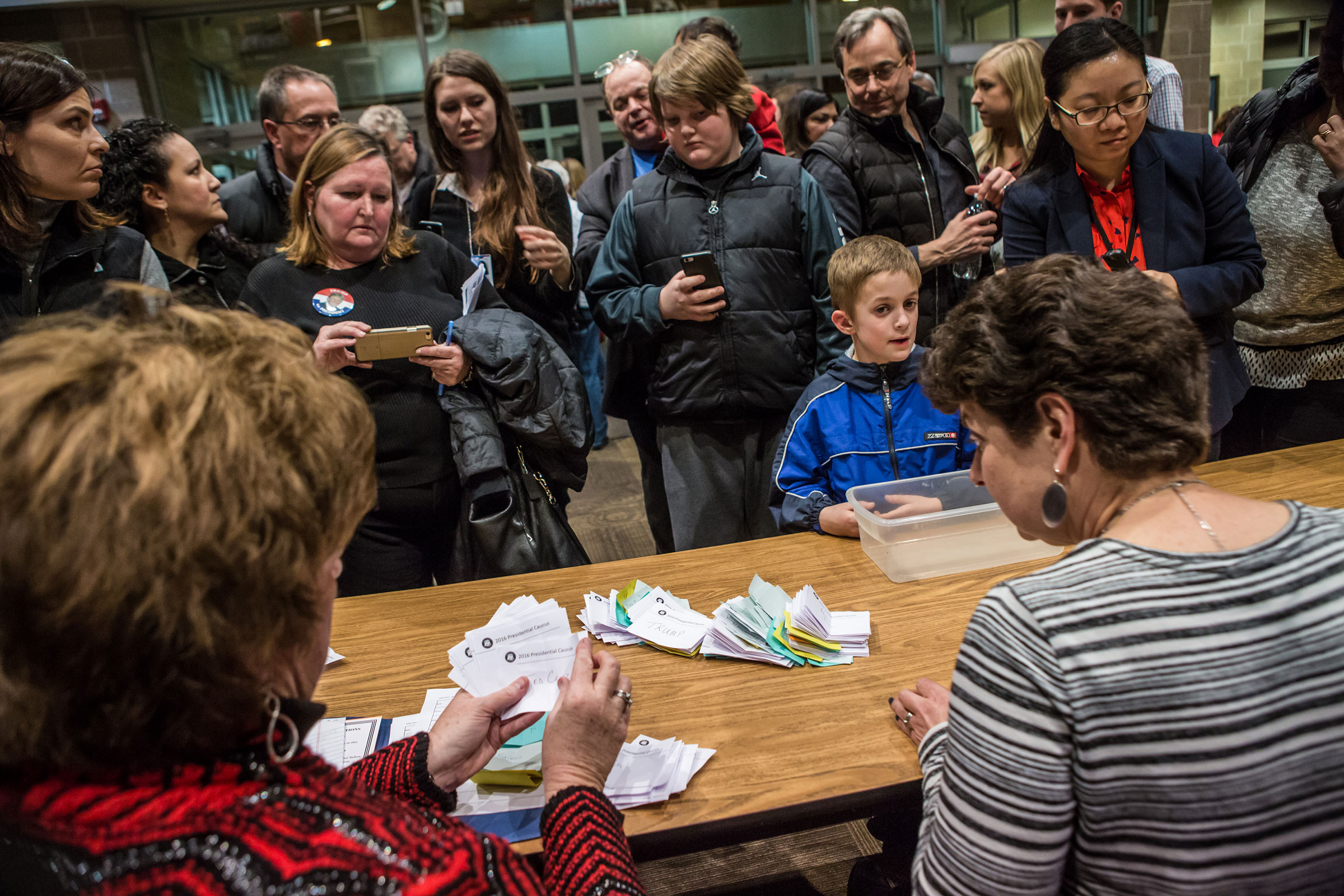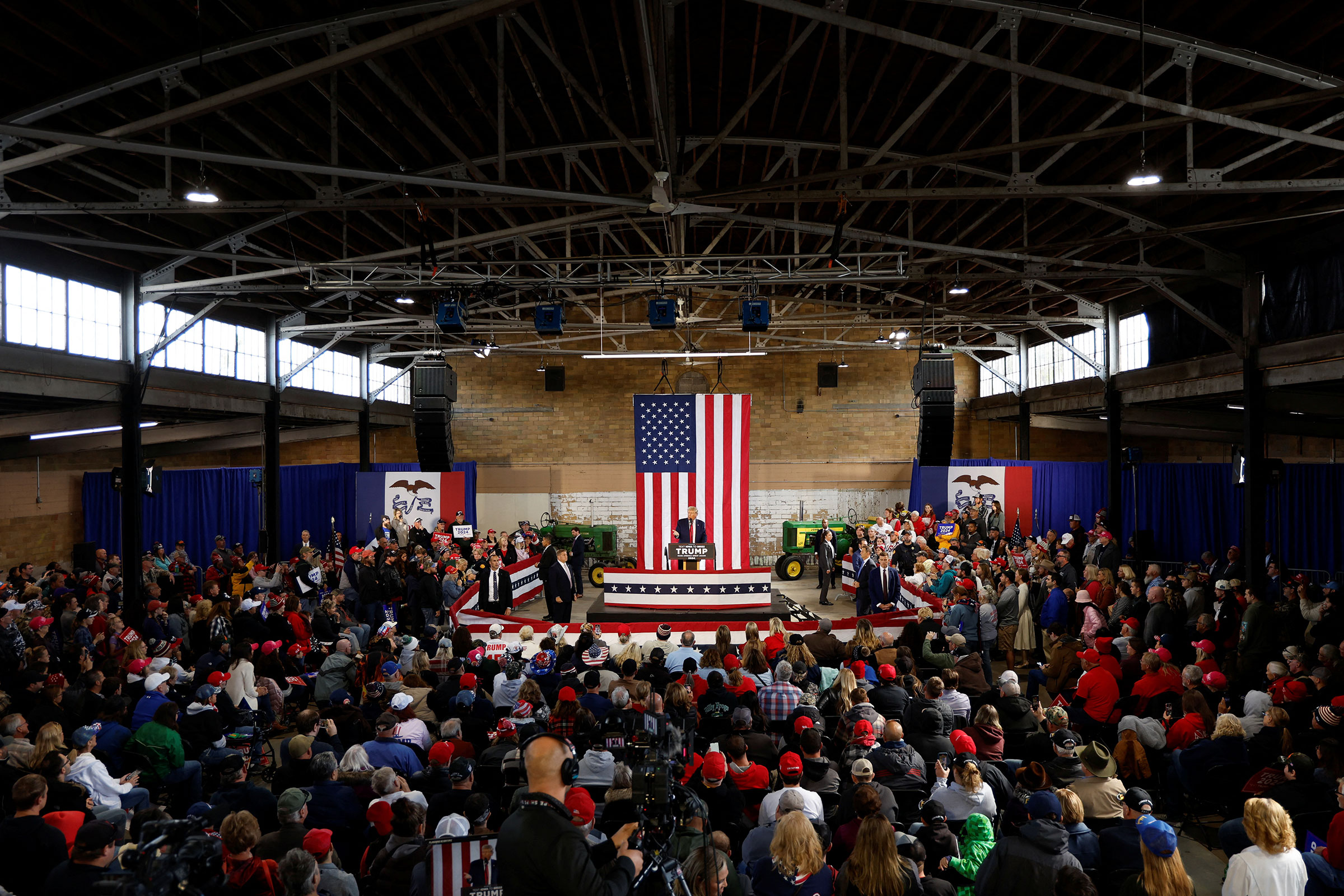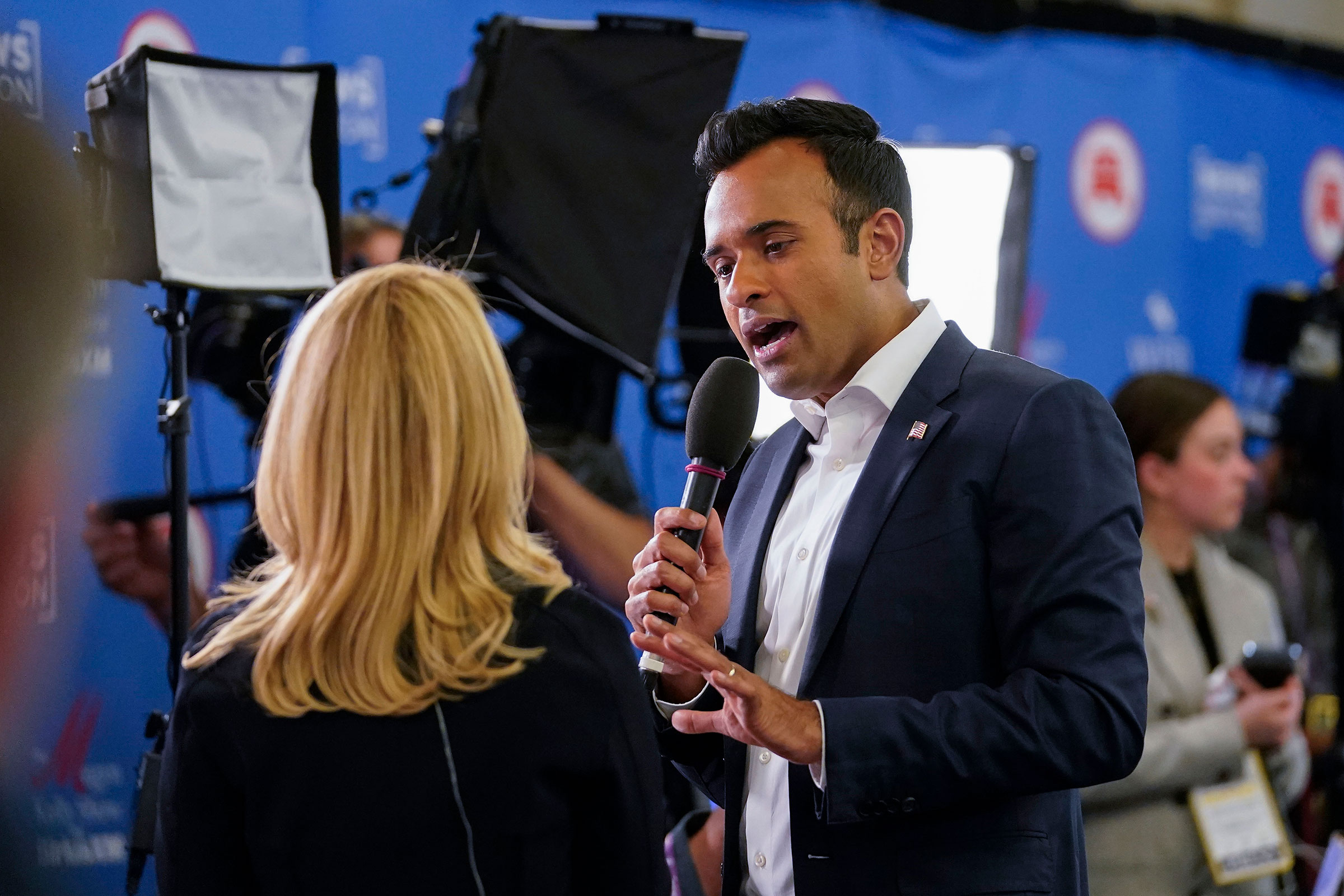
Biotech entrepreneur Vivek Ramaswamy is set to field questions from Iowa voters Wednesday at 9 p.m. ET at a CNN town hall, less than five weeks before the state’s January 15 caucuses kick off the 2024 Republican presidential nominating contest.
The town hall will stream live on CNN Max and for pay TV subscribers via CNN.com, CNN connected TV and mobile apps. It will also be available on demand beginning Thursday to pay TV subscribers via CNN.com, CNN apps and Cable Operator Platforms.
Here are five things to watch:
Differences with Haley: Among the most memorable exchanges at the four Republican presidential primary debates so far this year have been those between Ramaswamy and former South Carolina Gov. Nikki Haley. On and off stage, their clashes have taken personal turns. Haley in recent weeks has risen in polls, challenging Florida Gov. Ron DeSantis’ status as the second-place contender in Iowa and emerging as the party’s top-polling alternative to Trump in GOP primary surveys in New Hampshire and South Carolina, her home state. Even if Ramaswamy doesn’t climb in the polls himself, his criticism has the potential to shape the GOP race.
No one to brawl with: To date, Ramaswamy might be best known to voters for his sharp-elbowed, stage-dominating debate performances. He has relished picking fights with rivals such as Haley, Christie, former Vice President Mike Pence and others. If he is going to jump out of the single digits in national and early-state polls of likely Republican primary voters, he’ll need to create memorable moments of his own, outside of the context of playing the foil in debates.
“Double Grassley”: Ramaswamy has focused on Iowa throughout his campaign. As part of that strategy, Ramaswamy announced his intention to have visited every Iowa county twice before the caucuses on January 15. Earlier this month, Florida Gov. Ron DeSantis completed his goal of visiting all 99 Iowa counties – a feat dubbed the “Full Grassley” after Iowa Sen. Chuck Grassley, who visits all counties in the state every year. Ramaswamy also pledged earlier this month to host more than 200 events in the state before the caucuses, a massive undertaking that speaks to how critical success in Iowa is to Ramaswamy’s potential path to the nomination.
Conspiracy theories: At the Alabama debate, Ramaswamy said the January 6, 2021, insurrection at the US Capitol “looks like it was an inside job.” After the debate, he told CNN, “I do think we have a government that’s consistently lied to its people.” Over the weekend, he embraced another fringe theory, telling a crowd in Sioux Center, Iowa, that the plot to kidnap Michigan Gov. Gretchen Whitmer was an inside job. Ramaswamy’s embrace of conspiracy theories could win him support from a share of the GOP base — many of the same pro-Trump voters who have parroted the former president’s lie that the 2020 election was stolen. But it could also alienate the broader general electorate. It’s likely to be a topic he addresses Wednesday night.
Questions of faith: Ramaswamy could also use Wednesday’s town hall to address his religion in a bid to assuage Iowa’s substantial evangelical Christian constituency that he, a Hindu, shares their values. He often cites his education at a Catholic high school in Cincinnati to substantiate his connection to Christian values. “When I read the Ten Commandments for the first time … it didn’t feel like I was reading those values for the first time,” he said last month in Ida Grove, Iowa. “And that’s when it hit me: Those values don’t belong to Hindus. Those values don’t belong to Christians. Those values belong to God, actually, and those are the values that this nation was absolutely founded on.”
